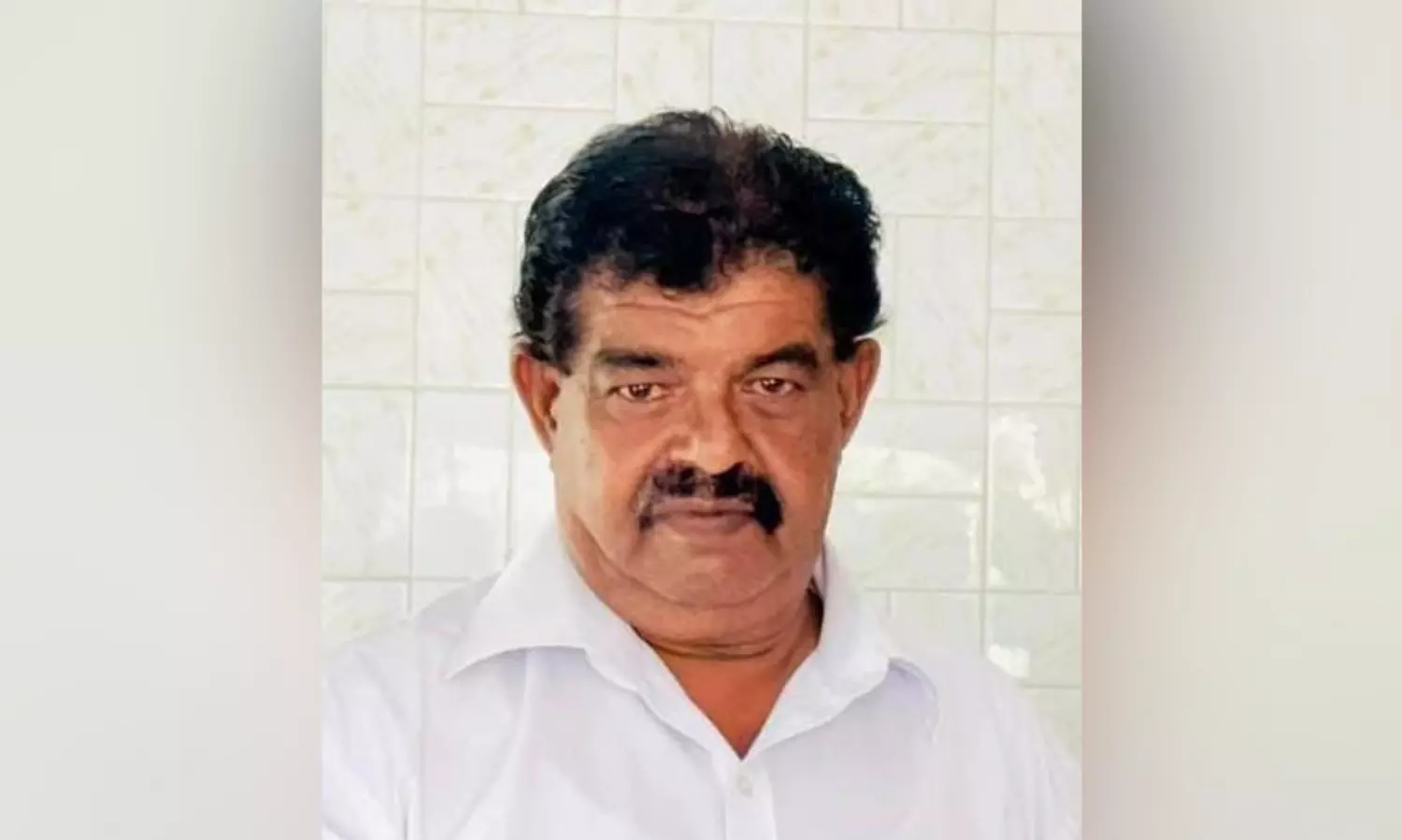A 12-day climb down into this 50 million-year-old, world’s 2nd largest cave, known as Majlis Al-Jinn or the Gathering of Jinns, required every ounce of muscle, guts, grit and tenacity to conquer
The Omani people speak of the Majlis al Jinn or the Cave of Jinns in hushed tones. Climbing down deep within the bowels of the earth and again climbing up from its dark and dank, cavernous depths into the light, requires a special brand of raw courage, grit, and steely nerves together with unlimited reserves of mental tenacity; the will to never say die and to carry the day and win at all cost. And this is the kind of mettle that turns men like German Stefan Glowacz and American Chis Sharma into legends and heroes.

Champion climber Glowacz, with over three decades of climbing experience in all kinds of terrain and locales around the world, screened held a preview screening of a documentary film ‘Into the Light’ shortly after climbing down the cave in 2015. The film gives a minute by minute account of the 12-day climb in the Majlis Al Jinn cave chamber, undertaken by him and Sharma and their backup team of around 20 persons.
The documentary was filmed with the support of the Ministry of Tourism. David Solomon managed to get an inside story of Stefan Glowacz, designated Red Bull athlete, for an insight into his psyche as a man, as an athlete and as the legendary climber. He was at the time working for the Oman Tribune, Muscat, as a Chief Reporter and Photographer.
Stefan says, “The challenging route inside Oman’s Majlis Al-Jinn sets a milestone, as it had never been attempted before and counts as the world’s longest roof climb with 13 pitches.

“Climbing a cave with the awesome dimension such as Majlis Al-Jinn has never ever been attempted before. It was a unique project and until we started climbing, we didn`t know if it`s possible or not. As climbers, we are always searching for new goals to push the limits. This cave was a perfect target,” he adds.
“The 13-pitch tour turned out to be the most demanding roof climb in the world. It took us more than 12 days to conquer the route. And in the process, we came to appreciate the symbolism of this climb’ this journey.

Stefan says Majlis Al-Jinn or the Gathering of Spirits, the name given to it in Arabic, is what it means when translated into English, is a very accurate term. “You feel that you are stepping into a deeply mystical world. On every side that you look, the rock formations inside the cave seem to give an impression of grotesque figures gathered for some sort of a council meeting.
“The Majlis Al Jinn is the largest grotto on the planet that is penetrated by light. Suddenly you have to focus on questions such as: Is the light inside the cave sufficient enough to make the climb without headlamps. How does the light entering the cave, change through the day. Is there enough oxygen. How warm or cold is it down there. Is the stone moist or even wet”.
Stefan says these are the kind of question that draw me in and pose a challenge – the new, the unknown and not knowing what await you. And finally, daring to do something no one else has done before”.
Stefan’s lithe figure and wiry frame belie the strength and power that is there within him, and you wonder how he manages to climb the impossible summits. He seems to read your mind and tell you with a gentle smile. “You can’t conquer insurmountable challenges only with muscles and physical. There is something more, and it’s all in your head. If you think you can do something, you will most certainly succeed, no matter what the odds.”
Talking about a special strategy employed by him and Chris to negotiate the impossible climb, Stefan says: “Our special equipment included ascenders that we had to use to pull ourselves up the fixed ropes as we move along. These can be slid upwards, but they lock in place when any sort of weight is exerted on them so that you don’t slide downwards”.

Elaborating further, Stefan says “Most climbers in the Himalayas wouldn’t stand a chance of getting to the summit without fixed ropes and ascenders because their climbing skills aren’t good enough”.
He asserts that he and Chris used these accessories to bolt the line and get back to the highest point they had reached the previous day in order to start the days climb.
Knowing that caves are usually dark and scary places, you can’t help asking him if he was afraid of the dark as a young boy. He doesn’t take too long to answer that one. “Yeah, I was afraid of the dark when I was little. I’m still scared of going into a dark forest.
Stefan tells you with a gentle smile. “You can’t conquer insurmountable challenges only with muscles and physical strength. There is something more to it and it’s all in your head. If you think you can do something, you will most certainly succeed, no matter what the odds”
What about claustrophobia? He says he’s not particularly claustrophobic. But he did once have a bad experience. “:I think I was 10-11, and I was rolled up inside a rug and then l\eft alone inside a dark room. But that experience has not stayed with me. I must admit that the cramped spaces inside caves have not kept me from going inside these dark and unknown places”.
When you ask him if he was a brave boy, he smiles and says, “I was always a daredevil, so I am never afraid of taking up unknown challenges”.
How does the 50-year-old Stefan stay fit for an expedition?
“Before an expedition, I start with specific preparations that are specially tailored to what I have planned.
Does he follow any particular regimen for endurance and stamina?
“I rather climb onto my bike and do a couple of miles in the countryside than go jogging”. But the real reason for this, he tells you, is that on account of the several knee injuries he has suffered over the years, jogging causes him a fair amount of discomfort.
What about actual climbing training? “I complete three-four climbing specific circuits a week.
To the question of where he likes to train and does he have any motivation problem, Stefan says, he prefers to train at home, although there are times when he does train in the gym as well.
“As far as I can recall, I’ve never had any motivation problem”.
Does he also go in for some kind of mental training? Does he follow any special diet, and does he take alcohol? To all these questions, Stefan says he does not go in for any kind of special mental training. “I don’t go in for any kind of special diet. I believe that normal food is the best for your body. I sometimes like to have some beer. But then there will be times when off any kind of liquor for several weeks”.
Finally, when you ask him how much he relies on his talents and skills as a climber, Stefan says: “Without talent, you can’t get to the top.
According to Stefan, the mountain chains of Oman are special in their own way. What is more fascinating however is what lies beneath the surface: Mystical labyrinths and a captivating landscape of stalactites and stalagmites. Unlike in many other parts of the world, where researchers have already documented caves in great detail, geologists here are still at a very primary level”.
The athlete says he first heard about the cave when Felix Baumgartner jumped into the hole. “I heard about the cave a couple of years ago from a friend of mine who was working on that project. He mentioned the possibility to climb it and just a few days before New Year 2013/14”.
“I went there with him to scout the possibilities. It was just breathtaking, and I decided to give it a try together with Chris.”
He added: “This climb is unique from start to finish. Every single meter of the climb is very overhanging and soon turns into roof climbing. It is not comparable with any other route on earth. It is an outstanding achievement.”
US sport climbing icon and climber of some of the toughest routes on the planet, Chris Sharma, who is 15 years younger than Stefan, was also part of the challenging Majlis Al-Jinn climb. A typical quote from Sharma that sums up his personality and his spirit is: “Climbing is like meditation. Top athletic performance is like a path to yourself. It is a very personal, almost spiritual experience”.
Speaking about his Majlis Al-Jinn climbing partner, Stefan says: “For Chris climbing is his whole life. He wants to find himself through it”.
Coming back to the project itself, Stefan says the logistics of a project like Ras Al Jin are a serious challenge, especially when it is happening in a country where time moves slowly project”.
The climber says by early January of 2013, he knew he wanted to go through with the project. “But things began to move only after we were able to secure permission from the Ministry of Tourism, the government of Oman, six months later”.
There are no limits to how high or how deep a man can go in search of adventure, conquest or challenge. But the climb into the dark, cavernous world of Majlis Al-Jinn by Stefan Glowacz and Chris Sharma will always occupy a special place when people talk about the triumph of the human spirit over one of the most gruelling climbs ever attempted by men. Perhaps the lines from American poet Helen Steiner Rice will sum up aptly the courage and grit of these two climbers: “No hill’s to steep, no mountain too tall; with faith in your heart, you can conquer them all”.











